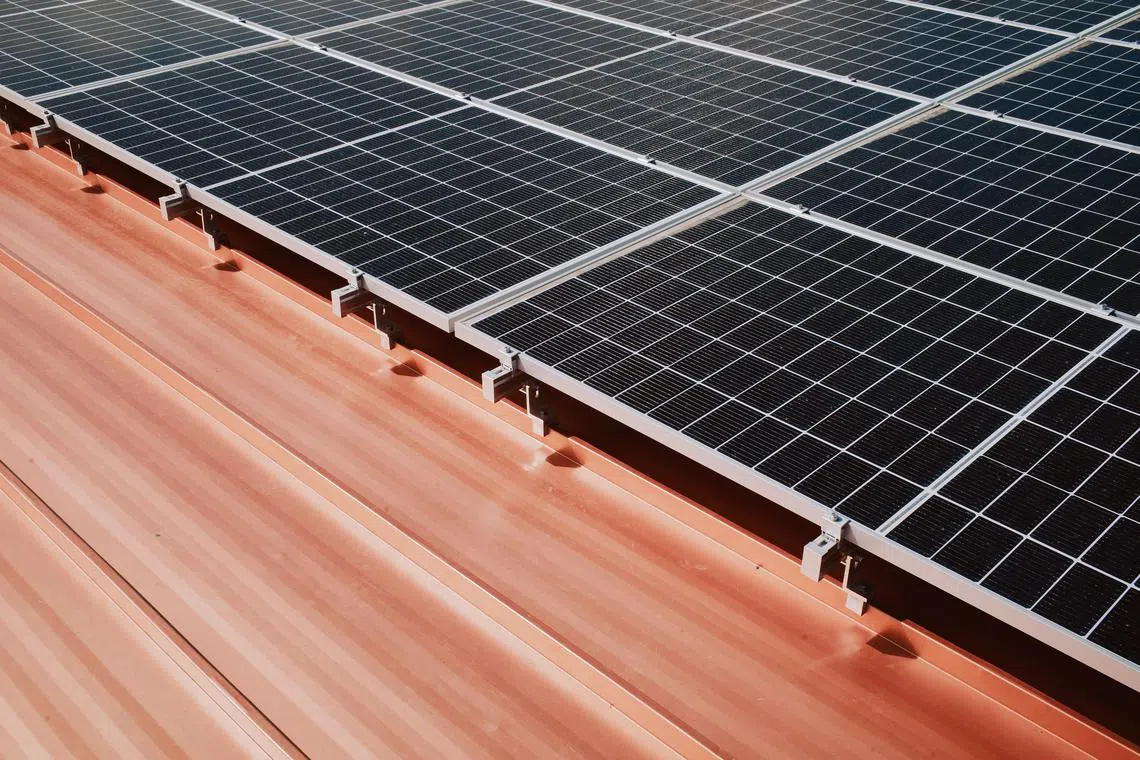Chinese solar makers evaded US tariffs via S-E Asian nations, investigation finds
Sign up now: Get ST's newsletters delivered to your inbox

The ruling centred around esoteric trade laws that aim to protect American manufacturers from unfairly cheap foreign products.
PHOTO: NYTIMES
Follow topic:
WASHINGTON – US officials have determined that four of eight major Chinese solar companies under investigation in recent months tried to evade tariffs by funnelling products into the United States through Southeast Asian countries,
The decision applies to the Thailand operations of Canadian Solar and Trina Solar, as well as BYD Cambodia and Vina Solar Vietnam, according to documents published by the US Department of Commerce on Friday.
The ruling centred around esoteric trade laws that aim to protect American manufacturers from unfairly cheap foreign products. But more broadly, the case is related to an increasingly difficult question confronting US policymakers: How quickly the United States can expect to wean itself off China’s supply of materials that are crucial for the American economy, including solar panels needed for a transition to green energy.
The investigation, initiated at the request of a small California-based company named Auxin Solar, centred on whether Chinese companies have been trying to bypass tariffs that the US imposed on cheap solar panels imported from China.
In recent years, Chinese solar companies have significantly expanded their manufacturing presence in South-east Asian countries that do not face the same tariffs.
The trade case rests on whether companies are actually using these South-east Asian countries as a significant site of manufacturing, or if they are just making minor changes to products that are largely made in China to try to get around US trade rules.
Other companies that were also under investigation – namely New East Solar Cambodia, Hanwha Q CELLS Malaysia, Jinko Solar Malaysia and the Vietnam operations of Boviet Solar – were found not to be violating US trade rules.
Typically, companies found to be circumventing US tariffs would immediately be subject to higher duty rates to bring their products into the US. But in an unusual measure, the Biden administration in June preempted higher duties by announcing a two-year pause on any tariff increases on solar products.
The administration said its decision to halt additional tariffs would help ensure that the US has enough solar panels as it tries to reduce its reliance on fossil fuels in the months to come. The Biden administration has set an ambitious goal of generating 100 per cent of the nation’s electricity from carbon-free energy sources by 2035, a goal that may require more than doubling the annual pace of solar installations. NYTIMES

